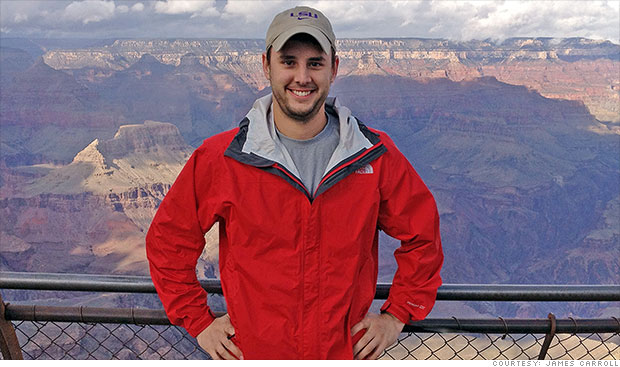@CNNMoney April 9, 2013: 7:20 AM ET

Millennials job hop only slightly more frequently than their parents, but of course there are exceptions. James Carroll had 17 jobs by the time he turned 25. Click the photo to read his story and others.
NEW YORK (CNNMoney)
The job-hopping millennial is not so different from their parents ... at least not yet.
The average 25-year-old has already worked 6.3 jobs between the ages of 18 and 25, according to a recent study by the Labor Department.
Sound like a lot? That's more than their parents' generation, but not by much.
The youngest baby boomers (those currently between ages 50 and 55) worked an average of 5.5 jobs by age 25.
And by the time they reached their forties, the boomers worked about 11 jobs -- equivalent to a job change roughly every two years.
"Look at the millennials and everyone says they're very different. But if you look across the generations, the values are the same. They're just expressed differently and they manifest themselves differently," said Sayed Sadjady, principal with PwC's People and Change practice.
Sadjady points to the advent of online career boards as leading to increased churn in the job market overall. If older generations had that same kind of access to so many job listings and recruiters when they were young, they may have jumped around even more too.
"There's more visibility as to what are the available open positions, what jobs are going and where the needs are," he said. "Conversely, there's a lot of visibility into talent. Recruiters have an easier time than in the past of identifying individuals because of things such as LinkedIn."
Meanwhile, today's 20-somethings seem to have overly conservative expectations for their own careers.
A PwC study of about 4,300 college-educated millennials found that 54% expect to work for between two and five employers over their entire careers.
"It's an extreme underestimation," Sadjady said.
A separate study of workers ages 21 to 31, found on average, they expect to work only five jobs total during their lifetimes.
In reality, it will probably end up being more like 12 to 15 jobs, said Alexandra Levit, co-author of the study, which was commissioned by DeVry University's Career Advisory Board and conducted by Harris Interactive.
There are differences within the generation. The youngest millennials -- those between the ages of 21 to 25 -- graduated college after the recession and expect to work fewer jobs than millennials in the 26 to 31 age bracket, the Career Advisory Board study found.
"The millennials coming out of the recession have become a lot more conservative and cautious about their careers than previously," Levit said. "They've been humbled. Those coming out of college post recession are scared out of their minds by the recession."
First Published: April 9, 2013: 6:02 AM ET
No comments:
Post a Comment